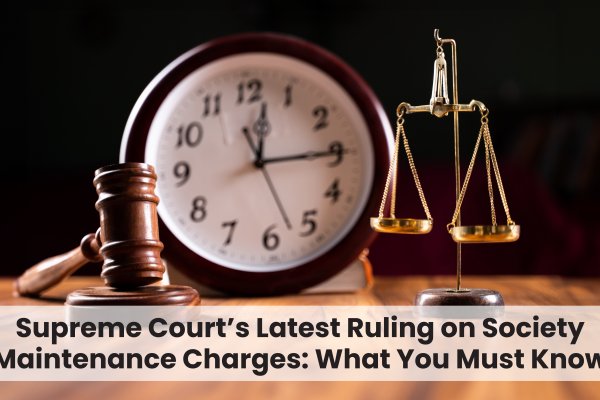If you’ve ever dreamt of owning an individual house in Chennai, we’re sure you’ve thought about location, design, floor plans, and perhaps even Vastu. But have you ever paused to consider how movable and immovable property regulations shape the way your home is owned or transferred?
Well, it’s more important than most of us think.
We often hear terms like “movable” and “immovable” property tossed around. The answers might surprise you. When you’re investing in something as significant as an individual house for sale in Chennai, understanding these classifications is essential.
We’ll discuss how movable and immovable property laws truly impact homeownership, especially when your heart is set on that perfect house in one of Chennai’s thriving neighbourhoods.
Understanding the Basics: What is Movable and Immovable Property?
Before we connect the dots with homeownership, let’s get the definitions out of the way.
- What is Immovable Property?
Immovable property, as defined by the Transfer of Property Act, refers to anything that is permanently affixed to the earth. That includes land, buildings, and any benefits that arise from the land. So, when you’re purchasing an individual house for sale in Chennai, that house is considered immovable property.
For example, suppose you buy a villa at Casagrand Holachennai, the house and the land it stands on are registered under your name. That’s immovable property.
- What is Movable Property?
On the other hand, movable property includes things that can be transported from one place to another without damaging the structure or the ground. Think furniture, appliances, personal belongings, even vehicles.
These assets are not registered with the land department but can form part of the value of a property. For example, suppose you furnish your home with imported sofas and modular kitchens. These are your movable assets and can be relocated anytime.
Understanding the difference between immovable and movable property matters deeply when you’re thinking about taxes, ownership rights, or even inheritance.
Why Should Homebuyers in Chennai Care About These Terms?
When we talk to potential homebuyers looking for an individual house for sale in Chennai, most are focused on square footage, the number of bedrooms, and amenities. But as builders, we urge you not to overlook how the classification of property impacts the following:
- Ownership Rights
Immovable property like your home is registered under your name through sale deeds and title documents. This registration is legal proof of your ownership. Movable assets don’t require such processes but are still important during disputes or inheritance planning.
- Property Tax and Stamp Duty
Taxes and duties differ for movable and immovable property. Stamp duty, for example, is applicable only to immovable property transactions. Knowing what you’re paying for helps you budget better and avoid unnecessary costs.
Why Legal Clarity is Important for Inheritance of Movable and Immovable Property?
Passing down a house to your children in Chennai involves formal registration and compliance with local laws. The difference between movable and immovable property becomes important here, especially when preparing wills or family arrangements.
Properties that aren’t legally clear can lead to disputes over what’s considered permanent (immovable) and what isn’t (movable), which can complicate things for homeowners down the line.
That’s why every individual house for sale in Chennai should undergo a thorough legal screening. Here are some things that you should look for:
- Non-encumbrance certificates to assure freedom from legal liabilities
Before investing in any property, it is crucial to obtain a non-encumbrance certificate. This official document verifies that the property is free from any monetary or legal liabilities such as unpaid loans, mortgages, or litigations. It provides peace of mind to buyers by ensuring there are no outstanding dues or claims that could impact ownership.
- Verified Title Deeds to Confirm Ownership
A verified title deed is essential to establish the legal ownership of a property. It confirms that the seller has the legal right to transfer the property and that there are no disputes regarding ownership. Carefully reviewing and verifying the title deed helps prevent future conflicts and ensures a smooth, undisputed transaction.
- RERA Compliance for Transparency and Accountability
RERA (Real Estate Regulatory Authority) compliance is a strong indicator of a trustworthy project. Properties registered under RERA must adhere to clear guidelines regarding project timelines, construction quality, and legal documentation. This ensures transparency, protects buyers’ interests, and holds developers accountable for their commitments.
- Approval for Both Building and Land Use as per Planning Regulations
Before purchasing a property, it is vital to ensure that all necessary approvals have been obtained from the relevant planning authorities. This includes clearance for both building plans and land use in accordance with the local development regulations. Proper approvals guarantee that the construction is legal and conforms to zoning laws, helping avoid complications in the future.
Securing Your Future with the Right Knowledge
Owning a home is not just about keys. It’s about securing your legacy. Knowing the difference between movable and immovable property allows you to plan finances, understand tax implications, and safeguard your ownership. It ensures that your investment in an individual house for sale in Chennai is not only functional but also backed by strong legal ground.
At Casagrand, we don’t just build homes; we build trust. Our team ensures that each project, from Perumbakkam to ECR, complies with all regulations that govern both movable and immovable property.


















